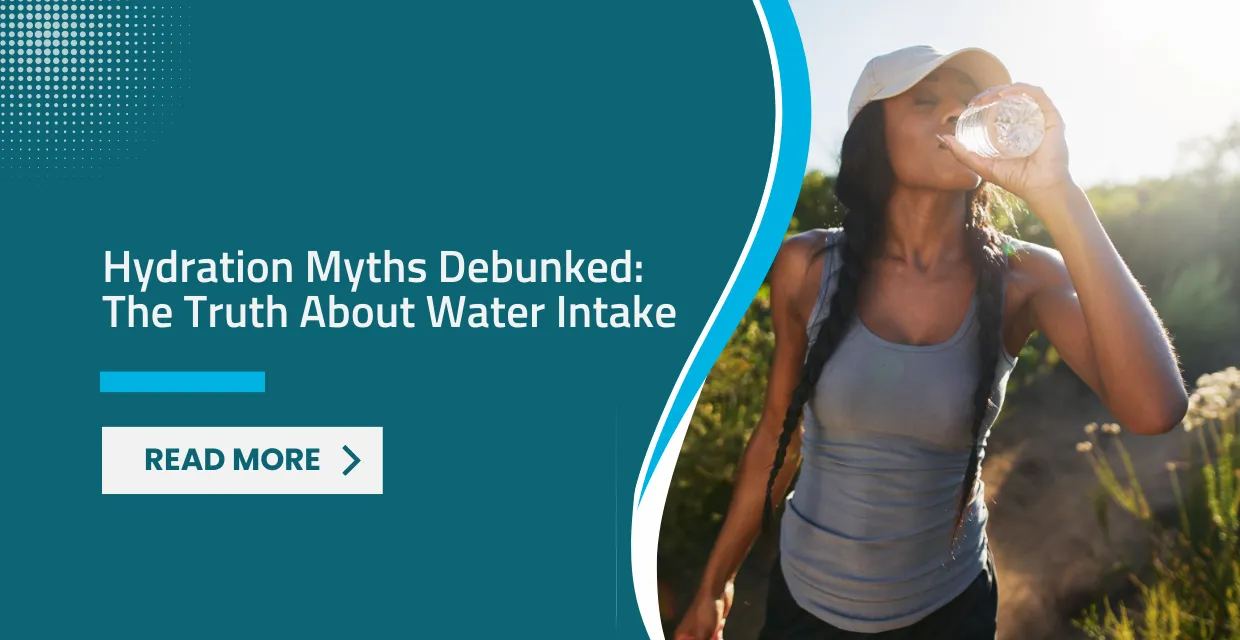Vitamins and Supplements: Do You Really Need Them?
In the quest for optimal health and well-being, vitamins, and supplements have become a significant part of many people’s daily routines. The global market for ...

Hydration is a fundamental aspect of health and wellness, yet it is surrounded by a plethora of myths and misconceptions. Understanding the truth about water intake is crucial for maintaining optimal health, avoiding dehydration, and even preventing certain health conditions. In areas where access to healthcare information and services is facilitated by institutions like the Best Hospital in Eldoret, debunking common hydration myths can significantly contribute to the community's overall well-being.
The "8x8 rule," which recommends drinking eight 8-ounce glasses of water per day, is a well-known guideline but not universally applicable. Water needs can vary significantly based on factors such as age, weight, climate, physical activity levels, and individual health conditions. Some people might need more, while others require less. Listening to your body's cues and considering your lifestyle is key to determining your optimal water intake.
Many believe that if you're feeling thirsty, you're already dehydrated. While thirst is indeed an early sign of dehydration, it's also a natural, reliable indicator from your body that it's time to drink more fluids. Responding to thirst promptly is generally an adequate measure for most healthy individuals to maintain hydration.
While water is the most efficient hydrator, other fluids and even foods contribute to your daily water intake. Beverages like tea, coffee, and milk, and high-water-content foods such as fruits and vegetables (cucumbers, watermelons, oranges) also play a significant role in maintaining hydration levels. It's important, however, to be mindful of the sugar and caffeine content in certain drinks which might counteract hydration efforts.
While staying hydrated can support weight loss efforts by promoting satiety and enhancing metabolic rate, water is not a magic weight loss solution. A balanced diet and regular physical activity are essential components of a healthy weight loss plan. Drinking water instead of sugary drinks can reduce calorie intake, but hydration should be part of a comprehensive lifestyle approach.
While urine color can be an indicator of hydration, aiming for completely clear urine is not necessary and can sometimes indicate overhydration. Pale yellow urine is typically a sign of good hydration. Extremely dark urine, on the other hand, suggests you might need to drink more fluids.
Overhydration, or hyponatremia, occurs when you drink more water than your kidneys can remove through urine, leading to diluted sodium levels in your blood, which can be dangerous. While rare, it's important to balance your water intake and not force yourself to drink excessive amounts beyond your body's needs.
Listen to Your Body: Drink when you're thirsty and respond to your body's signals.
Monitor Your Intake: If you're active, in a hot climate, or have certain health conditions, you might need to consciously ensure you're drinking enough fluids.
Diversify Your Sources: Incorporate water-rich foods into your diet and remember that all fluids count towards your hydration.
Limit or Avoid Diuretics: Be cautious with beverages that have a diuretic effect, like those high in caffeine or alcohol, as they can lead to increased fluid loss.
Carry Water With You: Having water on hand can encourage regular sips throughout the day, aiding in consistent hydration.
Hydration is more nuanced than simply adhering to a one-size-fits-all rule. Dispelling myths surrounding water intake is essential for adopting hydration practices that genuinely benefit your health. In places like Eldoret, where residents can rely on reputable healthcare facilities for accurate information and guidance, understanding the truth about hydration can lead to more informed health choices. Remember, the best approach to hydration considers individual needs, lifestyle factors, and professional advice from healthcare providers.
Partager cet article